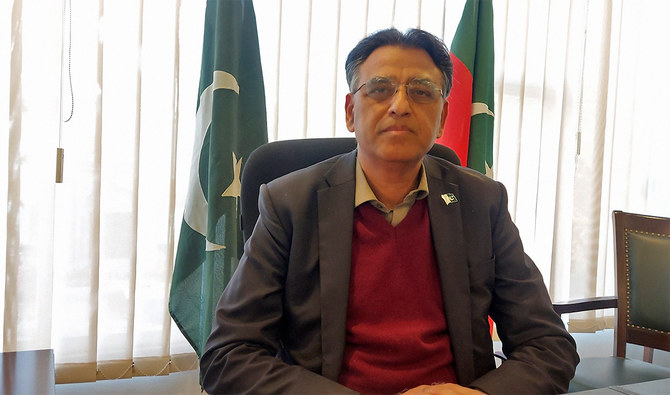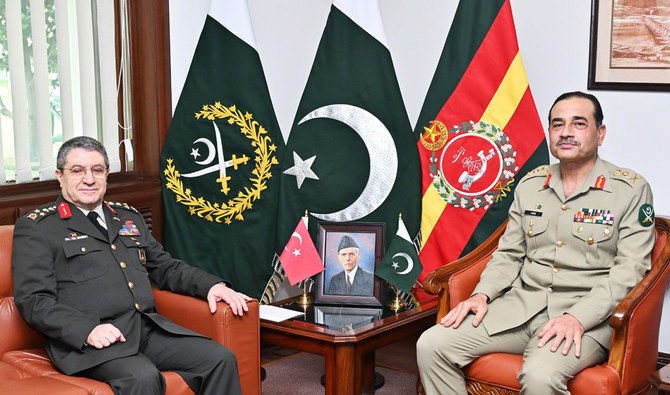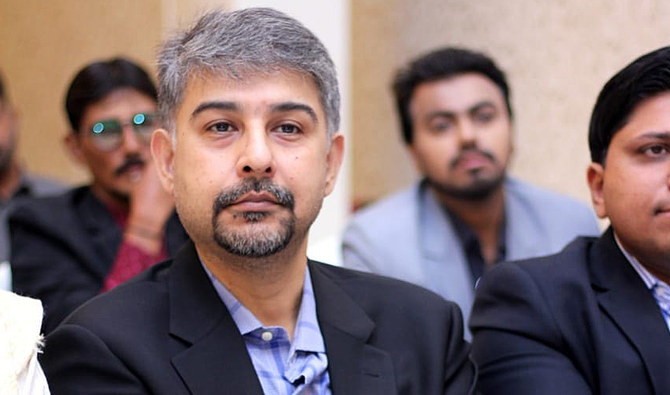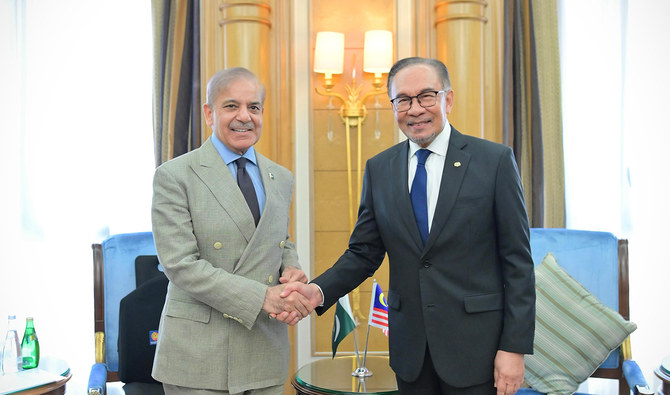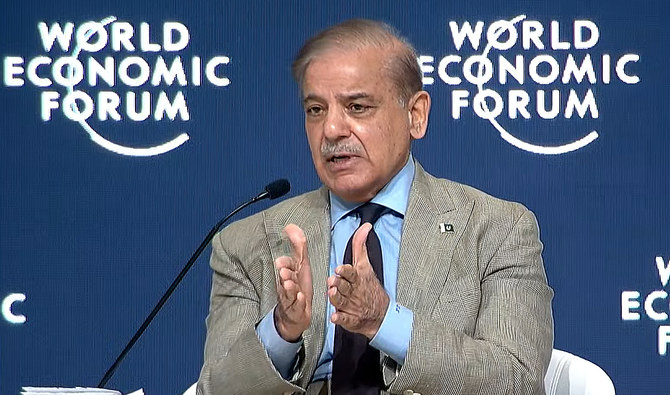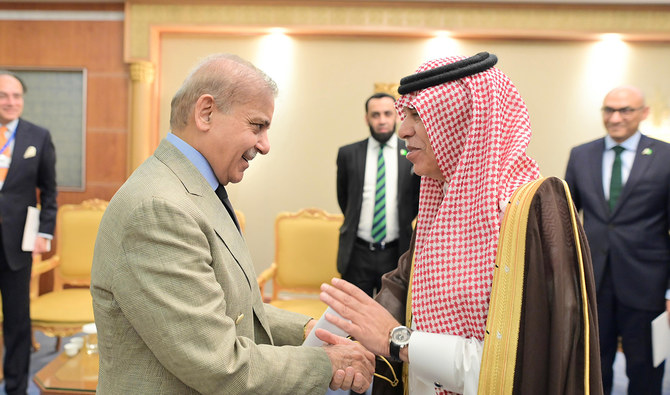ISLAMABAD: Former prime minister Imran Khan’s aide Asad Umar on Wednesday categorically said the Pakistan Tehreek-e-Insaf (PTI) party would not accept any interim government setup that is formed for an extended time period in the country.
Former Federal Bureau of Revenue (FBR) chairman, Shabbar Zaidi, said on ARY News program ‘Off the Record’ on Tuesday that Pakistan’s power corridors were discussing the possibility of bringing in a caretaker government for an extended time period.
As per Pakistan’s constitution, the caretaker prime minister and chief ministers are appointed after the national assembly and the provincial assemblies are dissolved. The country’s election regulator is bound to hold polls within 60 days after the term of the assemblies has expired, according to the constitution.
If the assemblies are dissolved before their term ends, then the election commission must hold polls within 90 days. The election body is also bound to declare results not later than 14 days after the polls have concluded.
“There is no room in the constitution for any extended caretaker setup,” Umar, PTI’s secretary-general, told Arab News in an exclusive interview.
“PTI cannot [accept the extended interim government] as a political party which believes in democracy and constitution,” he said. “It cannot support any step which is inconsistent with the constitution.”
Umar said the PTI has not been consulted on the issue. He said the Election Commission of Pakistan (ECP) should fulfill its constitutional responsibility of holding polls within 90 days. “That’s what should be happening,” he emphasized.
Ousted in a parliamentary vote in April, Khan has been pressurizing Prime Minister Shehbaz Sharif’s government to hold snap elections. Sharif has rejected the demand and repeatedly said polls would be held as per schedule in the country late next year.
“They [the government] can continue to hang on if they want, [but] they have caused severe, severe destruction in Pakistan’s economy, in polity, even now in society,” he said. “Every single day that their government goes on, the hole that Pakistan’s economy is falling into gets deeper and deeper,” he added.
PTI lawmakers resigned en masse from the National Assembly after Khan was ousted from office. The party has been pushing the speaker to accept their resignations. The speaker, however, has accepted some resignations.
He has said that lawmakers should appear before him individually to confirm their resignations.
“The speaker is being totally inconsistent in his approach,” Umar said. “He has already accepted eleven resignations without meeting anybody individually,” he added.
“No additional, no incremental work was done by these people after our initial resignations in April and he has accepted 11 resignations,” he said. “If these 11 could be accepted, that means there is no legal bar in accepting the other resignations.”
PTI Vice President Shah Mahmood Qureshi will lead a delegation of the party on Thursday to discuss the issue of the resignations with Speaker Raja Pervez Ashraf.
Meanwhile, Khan has announced the party would dissolve the provincial assemblies in Punjab and Khyber Pakhtunkhwa (KP). While the party’s ally Chaudhry Parvez Elahi is in government in Punjab, it has its own chief minister in Khyber Pakhtunkhwa.
“The dissolution [of the assemblies] will happen regardless of whether the National Assembly resignations are being processed or not,” he said.
About the recent spike in militant attacks across Pakistan, Umar described it as a matter of“extreme concern”. He lamented that the government had not given due consideration to the issue.
“It [the government] is so distracted,” he said. “It is so focused and consumed by its political survival that it is not being able to focus on the issue and that’s probably one of the reasons why this situation has aggravated so much because the attention that this issue deserves has not been given to it.”



